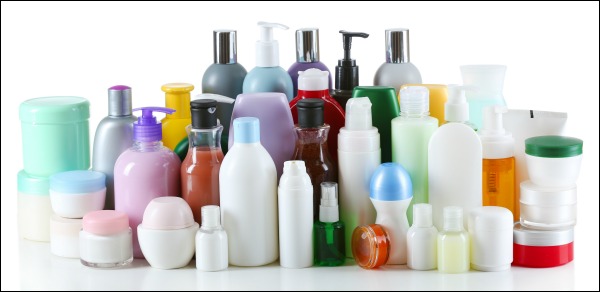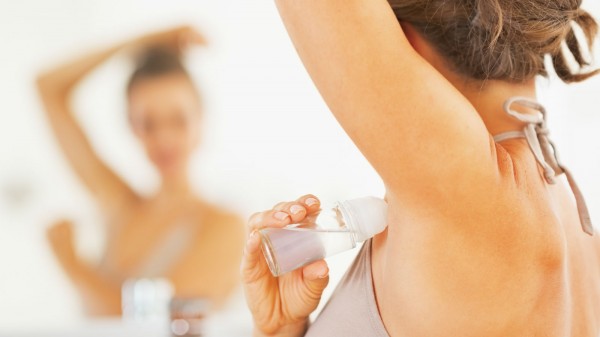Skin Wellness: A Closer Look at Chemical Stressors

About the Author

Dr. Jeanne Sandheinrich, D.C.
Dr. Jeanne Sandheinrich, D.C. is co-founder and an esteemed chiropractor at First Step Family Wellness. As a St. Louis native, she has a deep connection to her community and is passionate about providing exceptional care to her clients.
How well do you know your skin?
Do you think about your skin when choosing products from the store? Do you read the labels to see what added chemicals are getting up close and personal with your skin? Do you pay attention to how the products you choose are affecting your skin’s appearance and touch?
If your answer is “No” to these questions, it’s time you start getting to know your skin a bit better and treating it with more love. Why, you ask? Because your skin is more complex and important than you may think…
Skin is Complex and Vital to Your Well-being
Many aren’t aware that your skin is, in fact, the largest organ in the human body, accounting for about 16% of a human being’s total body weight. More so, it is a multifaceted structure built upon by an intricate design of nerves, cell layers, and glands that work together to protect your whole body daily.
Your skin regulates your body temperature and acts as a barrier for outside toxins; including bacteria and various chemicals. However, as seemingly strong and protective as skin is, it is still susceptible to the numerous and absorbent occupational, environmental and consumer chemicals that exist today. This making it even more important to be an informed consumer to keep your skin protected and functioning optimally for years to come.
The Absorption of Chemical Stressors
Our bodies are continuously encountering chemicals and unavoidable environmental toxins that directly impact the health and look of our skin, as well as the rest of our body. Chemicals that are laden in the air or that we intentionally place on our skin are absorbed, passed through the epidermis, glands or hair follicles in the skin and then enter our blood stream. While this does not always cause immediate effects, the long-term exposure to chemical stressors can directly impact the outward appearance of the skin and the connected central nervous system.
Considering Consumer Products: The Good, The Bad, and The Ugly
It’s nothing new that consumer products today are loaded with chemicals that have negative short- and long-term side-effects on the human body. Yet, many individuals today are still intentionally, and unintentionally, encountering countless chemicals through a list of consumer products, particularly that of “personal care” products.
The most common of these are shampoo, body wash and bar soaps, facial cleansers, makeup and makeup remover, hand sanitizer and lotions, creams for various skin ailments, deodorants…the list goes on. And while some of these items may only contain one or two toxic chemicals, others may have as many as a dozen or more and the combination of these products daily can lead to increased health risk and can also cause more harm than good to your skin.
It may be impossible to protect yourself and your skin from all the environmental toxins we encounter daily, but we do have a choice about the products we purchase and apply to our skin. It may seem overwhelming at first, but having a bit of increased awareness of what to look out for while shopping can make a world of difference and as always ask your Chiropractor any questions you may have along your wellness journey.
Chemical ingredients to avoid, include:
- Aluminum—Found in most anti-perspirants, this heavy metal has been linked to breast cancer in men and women, Alzheimer’s and other neurological disorders.
- Parabens (Methyl, Butyl, Ethyl, Propyl) – Although the use of parabens has gradually decreased in recent years due to awareness, they are still commonly used in skin and hair care products. These nasty chemicals can cause brain fog and other neurological dysfunctions. Parabens act as estrogen in the body and have been linked to the growth of estrogen-positive breast tumors.
- Oxybenzone (benzophenone-3) – Used in products that protect the skin from sun damage, such as sunscreen and makeup. Despite its ability to “protect” the skin from the sun, it is a photocarcinogen and a contributing factor in the recent increase of Melanoma cases with sunscreen users.
- Benzoyl peroxide – Is primarily used for acne treatments, but can also be found in shampoos, soaps, lotions, gels, and liquids.
- DEA (Diethanolamine) – May be found in cosmetics, moisturizers, sunscreens, soaps, body wash, and shampoo as a pH balancer.
- MEA (Monoethanolamine) – Used in a wide range of detergents and soaps as an emulsifier, being primarily derived from ethylene oxide and ammonia.
- TEA (Triethanolamine) – Derived from ammonia, TEA is primarily used to increase the pH in cosmetics.
- Dioxin – Part of the “dirty dozen” of persistent organic pollutants, dioxins are found in many cosmetics, other skin care products, and feminine hygiene products.
- Toluene – Most often utilized in chemical detergents, dyes, paints, adhesives, and other industrial substances; toluene has also found its way into many skin care products, nail polish, and hair products under the guise of names like benzene and phenylmethane.

Alternative Natural ingredients you should be looking for:
- Aloe Vera – This incredible little succulent plant has been relied on for the treatment of sunburns for some time, but it has even more incredible benefits you may not know about. What the Egyptians once called the “plant of immortality,” it works to nourish skin both inside and out. Aloe Vera reduces the signs of aging, naturally moisturizes the skin, treat skin abrasions and burns, lighten blemishes and reduce acne, reduce stretch marks, acts as an anti-inflammatory for sunburns and insect bites, and so much more.
- Apple Cider Vinegar (ACV)– Another miracle worker, ACV is known to be a natural remedy for numerous skin conditions. It not only works to balance the pH levels in your skin, but also can prevent future skin damage. Try applying it as a compress to help reduce swelling in the face, hands or feet or use it to treat common fungus or yeast infections. It also works well as a natural and organic facial mask when combined with equal parts bentonite clay and 1 Tablespoon raw honey, then applied to the skin for 10 to 15 minutes and rinsed with warm water.
- Coconut Oil – What’s not to love about coconut oil? It has been found to also have a wide-range of benefits, from reducing cavities to weight loss to working as a natural moisturizer and antibiotic for damaged skin. Coconut oil is a safe alternative to diaper rash ointment, first aid gels, dry skin lotion, makeup remover and much more.
- Melaleuca (Tea Tree) Essential Oil— Known as a cure-all in the holistic realm, Melaleuca (a.k.a. Tea Tree) essential oil has countless benefits for the skin. When purchasing essential oils, you want to ensure the quality of the oil—we only recommend the use of therapeutic grade essential oils, which are available from Young Living or DoTerra. Tea Tree is known to help with eczema, dry skin, increased hair growth, athlete’s foot, dander, acne, rashes and much more.
Other Alternatives for Natural Skin Care
Along with trading in your chemical-based personal care regime for more natural and organic options, it’s important to maintain a healthy diet full of fresh vegetables and fewer over-processed foods. Increasing your intake of Omega-3s, leafy greens, fish, and fermented vegetables can help establish a greater balance of good oils and bacteria that promote naturally moisturized skin.
Not only this, but you can also provide a consistent and strong boost to the central nervous system by receiving regular massages and chiropractic care. Touch massage has been found to reduce stress, anxiety and depression, while chiropractic care helps realign the central nervous system to reduce symptoms of psoriasis, eczema, and other skin conditions.
Want to learn more about how chiropractic care can help improve your skin’s appearance and your overall health? Dr. Jeanne and Dr. Ryan Sandheinrich of 1st Step Family Wellness in St. Louis, MO, are happy and fully dedicated to answering all your questions and providing you with the best possible family wellness care.